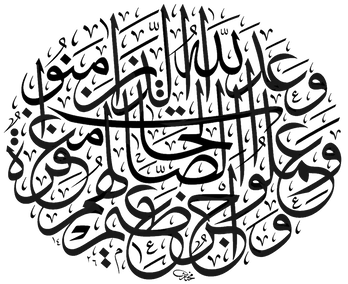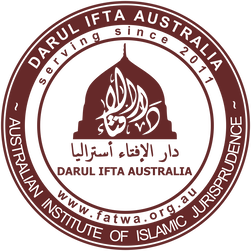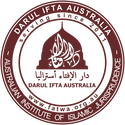Question:
This question is regarding joining prayers in a care home.
I am a female, UK, and I work at a care home for old ladies who are sometimes bed bound and helpless, they need medication at certain times and personal care, personal cleaning and bed pans etc . Often there are emergencies where the old lady suddenly loses ability to walk or they have dementia.
My shift is between 4pm -10pm. With consecutive 30 minute windows between each ladies flat in the building, I do not always have a break. My colleagues are often rushing around and it can be fast paced.
If I manage to find time to pray, it takes me 30 minutes because I have to remove my najasa clothes and wash and then change into clean clothes, make wudu and then go and pray 4 rakats without Quran and then change back into my uniform. The whole place is not clean because they have accidents on their chairs and on their carpet. I am observing proper hijab at work wearing lose clothes, everything including a clean hijab need changing and I cannot be late to any call.
These days I have been joing dhuhr and asr before I go to work and when I come home, I eat, wash and then joining maghrib with isha.
Is this permissible ?
JazakAllah Kheiran for reading from me.
Answer:
In principle, it is not permissible to join two fardh salahs at the same time with or without a valid excuse (The only exception to this ruling is during the days of Hajj in Arafat where Zuhr and Asr are combined and in Muzdalifa where Maghrib and Isha are combined with certain conditions). Each prayer has a prescribed time and intentionally praying the salah before or after the prescribed time is a sinful act and is prohibited. Furthermore, the salah offered before its time has set in is invalid.
You mentioned that you find it difficult to pray at work due to time constraints and preparing for salah involves a lengthy process. Firstly, it is important to note that one’s body or clothing becomes impure when najasa (impurity) is clearly visible on it or one is overwhelmingly confident that najasa has landed on their clothes or body. If this is the case, then one is required to wash only the section of the cloth or body that was affected by najasa. If there appears to be no najasa on one’s body, then only performing wudhu will suffice and it will not be necessary to take a shower. However, if one decides to take a shower and washes the limbs prescribed in wudhu in the process, then this shower will suffice and making a separate wudhu is not necessary.
Based on the above, before changing your clothes during preparations for salah, you should ascertain if there is najasa on it. As it is difficult to completely abstain from minute particles of najasa, Sharia has prescribed an excusable amount of najasa that amounts to a circle 2.75 centimetres in diameter. Therefore, if there happens to be najasa less than this amount on your work uniform, it will not be compulsory, but rather preferable to remove it. Hence, if you offer salah without removing it, it will be permissible. Moreover, if najasa touched your limbs, you are advised to wash these areas and thereafter perform wudhu. It won’t be necessary to take a shower in this case. By following these principles, Insha’a Allah you will have ample time to perform salah while at work.
Additionally, it is important to note that salah is one of the fundamental acts of worship which has been made obligatory upon every Muslim. Due importance should be given to each and every salah as missing or improperly performing salah due to negligence will pose a great calamity for every Muslim on the day of judgement. For a Muslim, anything that poses a barrier or obstacle from performing their daily obligatory prayers must be adjusted and rearranged.
Moreover, in this era the onslaught of modernism and liberalism combined with societal pressure forces individuals to join the workforce and encourages autonomous independence. On the other hand, Islam fosters a holistic and comprehensive framework which takes into account the wider community by instilling strong familial and societal ties. To achieve this, Allah Ta’ala has given each individual member of the society a specific duty and task. In following these divine ordinances of Allah lies the success of mankind. In Shariah, women have been discharged of their financial obligations and in turn have been provided the esteemed role of nurturing their children and establishing a devout familial atmosphere. Therefore, unless dire need or extreme circumstances persist, one should carefully consider their decisions and targets and aim to align them with the divine injunctions of Islam.
قال في المبسوط: (ولا يجمع بين صلاتين في وقت إحداهما في حضر ولا في سفر) (ولنا) قوله تعالى {حافظوا على الصلوات والصلاة الوسطى} [البقرة: 238] أي في مواقيتها وقال تعالى {إن الصلاة كانت على المؤمنين كتابا موقوتا} [النساء: 103] أي فرضا مؤقتا وعن ابن مسعود - رضي الله تعالى عنه - أن النبي - صلى الله عليه وسلم - قال «من جمع بين صلاتين في وقت واحد فقد أتى بابا من الكبائر» وقال عمر - رضي الله تعالى عنه - إن من أكبر الكبائر الجمع بين الصلاتين فكما لا يجمع بين العشاء والفجر ولا بين الفجر والظهر لاختصاص كل واحد منهما بوقت منصوص عليه شرعا فكذلك الظهر مع العصر والمغرب مع العشاء. (المبسوط للسرخسي 1/ 149:ط. دار المعرفة – بيروت)
وفي بدائع الصنائع: وعلى هذا الأصل قال أصحابنا: إنه لا يجوز الجمع بين فرضين في وقت أحدهما إلا بعرفة والمزدلفة (بدائع الصنائع في ترتيب الشرائع :1/ 126 ط. مطبعة شركة المطبوعات العلمية بمصر)
وفي مختصر القدوري: وتطهير النجاسة التي يجب غسلها على وجهين: فما كان له منها مرئية زوال عينها إلا أن يبقى من أثرها ما يشق إزالته وما ليس له عني مرئية فطهارتها أن يغسل حتى يغلب على ظن الغاسل أنه قد طهر. (مختصر القدوري: ص21 ط. دار الكتب العلمية)
في الدر المختار: (وغسل طرف ثوب) أو بدن (أصابت نجاسة محلا منه ونسي) المحل (مطهر له وإن) وقع الغسل (بغير تحر) وهو المختار
وفي الشامي: (قوله: ونسي المحل) بالبناء للمجهول، ثم إن النسيان يقتضي سبق العلم والظاهر أنه غير قيد وأنه لو علم أنه أصاب الثوب نجاسة وجهل محلها فالحكم كذلك ولذا عبر بعضهم بقوله " واشتبه محلها " تأمل. (حاشية ابن عابدين : 1/ 327 ط. الحلبي)
تحقيق القدر المعفو عنه من النجاسة علي الثياب: (أحسن الفتاوي: 2/89 ط. مكتبة الحسن)
(فتاوى محمودية: 5/253 ط. دار الإفتاء جامعة فاروقية)
قوله تعالى: ﵟفَإِذَا قَضَيۡتُمُ ٱلصَّلَوٰةَ فَٱذۡكُرُواْ ٱللَّهَ قِيَٰمٗا وَقُعُودٗا وَعَلَىٰ جُنُوبِكُمۡۚ فَإِذَا ٱطۡمَأۡنَنتُمۡ فَأَقِيمُواْ ٱلصَّلَوٰةَۚ إِنَّ ٱلصَّلَوٰةَ كَانَتۡ عَلَى ٱلۡمُؤۡمِنِينَ كِتَٰبٗا مَّوۡقُوتٗاﵞ [النساء: 103]
قوله تعالى:ﵟٱلرِّجَالُ قَوَّٰمُونَ عَلَى ٱلنِّسَآءِ بِمَا فَضَّلَ ٱللَّهُ بَعۡضَهُمۡ عَلَىٰ بَعۡضٖ وَبِمَآ أَنفَقُواْ مِنۡ أَمۡوَٰلِهِمۡۚﵞ [النساء: 34]
And Allah Ta'ala knows best.
Sh. Anas Ahsan
11/07/2023
Checked and approved by:
Mufti Faizal Riza
Mufti Anas Qazi
Darul Ifta Australia
www.fatwa.org.au



